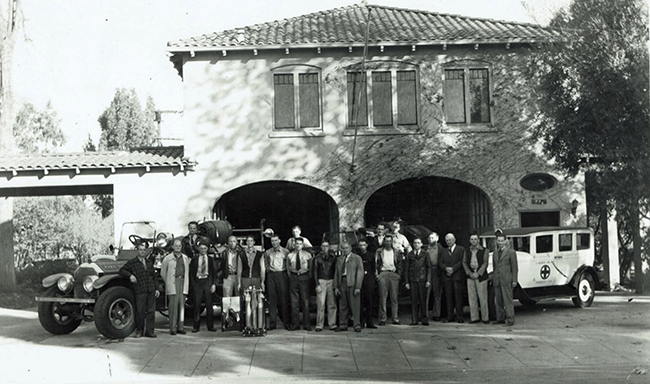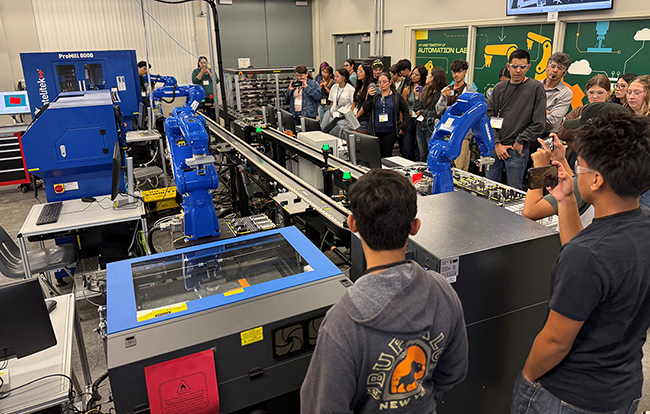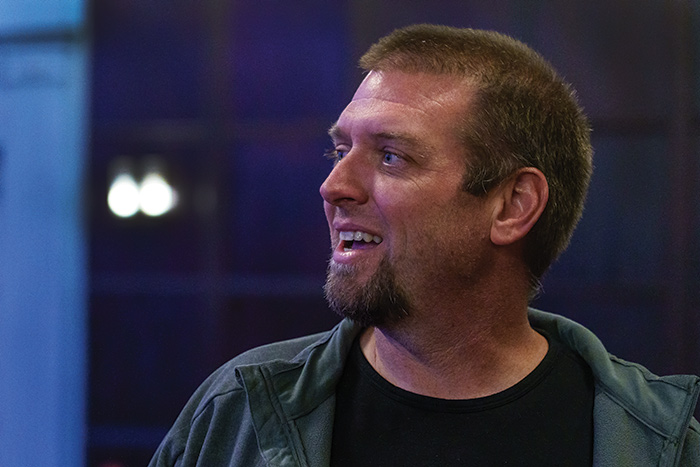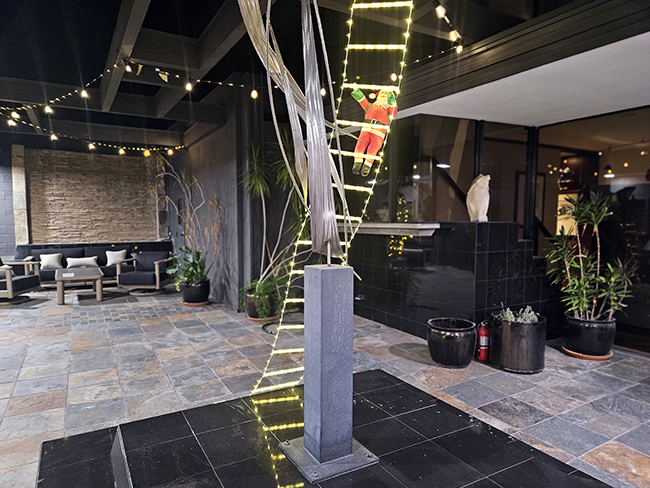Candidate forums get big response from community
With four events completed, candidate forum season is in full swing in Claremont.
The six city council candidates—Michael Ceraso, Zach Courser, Jed Leano, Douglas Lyon, Ed Reece and Jennifer Stark—pleaded their cases to the public during three candidate forums hosted by Active Claremont, Sustainable Claremont and the Claremont Senior Services.
Both the Active Claremont and the Sustainable Claremont forums were well attended, with both holding standing-room only crowds at the Hughes Center and the Hahn Building, respectively.

When asked what the most “pernicious” financial problem facing Claremont was, Ms. Stark said it was the threat of losing future employees and low morale due to an underfunded budget. “Long term, that would be a huge loss to our city,” she said.
Ms. Stark and Mr. Courser both noted the city would need to increase revenues. Mr. Courser emphasized the need to broaden ideas about types of businesses in the city.
“I think we’re stuck thinking about business being sort of a narrow conception of entertainment options and restaurants,” he said. “But we need to deepen and diversify our tax base if we’re going to grow it.”
Mr. Leano warned that Claremont needed to be ready for an impending recession, and that means voting for councilmembers who can make tough budget decisions.
CalPERS was also mentioned, and Mr. Reece cautioned that although Claremont is stuck paying its unfunded liability—the city would have to pay a penalty of over a quarter of a billion dollars if it ifies the contracts—the key is to address it by increasing revenues.
“Complacency kills us, and I think we need to take an active role in managing this debt,” he said.
One question submitted by the audience was direct: what taxes will the candidates raise to balance the city budget?
All six candidates shied away from the idea of raising taxes. Mr. Lyon said the key was to sunset taxes when first implemented.
“It forces us to relook at things rather than just having things on automatic pilot, which is not a good plan,” he said. “That just leads to structural deficits.”
Mr. Ceraso proposed putting a hold on planting trees in the city “if we cannot afford to sustain them.”
He and Mr. Leano both brought up the Landscape and Lighting District, with Mr. Leano remarking it cost $3.8 million a year for a return of only $2.2 million. A “grown-up conversation” needs to be had with residents, Mr. Leano said, about the costs versus the amount of services the LLD generates.
“That’s how we got in this mess; because we didn’t have these conversations,” Mr. Leano said. “We’re paying the deficit on that fund through our general fund, and I want to look into that.”
The forum held the following day focused on two aspects that are important to Claremont life—sustainability and the city’s heritage.
When asked how to offset costs for an underfunded Sustainable Claremont, most candidates pledged to keep sustainability a top priority in the city.
“In my ideal world, not only would a planning commission be required by law, but a sustainability commission would be required by law.” Ms. Stark said.
Mr. Reece pledged to update the city’s sustainability plan, calling it “a priority and necessary in our community,” and said he was passionate about making sure Sustainable Claremont has necessary funds.
Mr. Lyon emphasized that sustainability was in the “discretionary” part of the city budget, meaning money left over would be used to fund it. In tight financial times, he said, there must be conversations about what the community cares about the most, and move those items to the top of the funding list.
Moderator David Shearer then asked if the candidates were in favor of a preservation ordinance for Claremont. All said yes.
Mr. Courser said the city is behind the curve on the topic, stressing that it shouldn’t be thought of as a “binary decision—homeowners versus the ordinance,” but more as a way to guide homeowners as they invest money into updating their homes.
Mr. Leano referenced moving Renwick House for the upcoming Pomona College Museum of Art.
“If we had had a preservation ordinance in place at the time that project was being considered—certainly the consideration of that project relative to a standing and legally-passed city ordinance—that discussion could have come out completely differently,” he said.
The candidates were also asked about their plan to address the decline of trees in Claremont.
Both Mr. Leano and Ms. Stark connected the loss of trees to the city budget. Mr. Leano pointed to the loss of the city arborist position, which was eliminated during budget adjustments earlier this year.
“So if you want to know how we can solve this problem of properly taking care of our urban forest, it is fixing that budget,” he said.
Ms. Stark maintains that if Claremont “invests in reforestation, we’re also investing in our economy, which boosts revenues for our budget.”
Accessory Dwelling Units, or ADUs or “back houses,” were also discussed. Nearly every candidate was in favor of back houses being built as a way to chip away at the affordable housing crisis, so long as they keep within the character of the city.
Mr. Ceraso suggested a transit occupancy tax on AirBnbs or other short-term rentals.
“So if an individual wants to build their own ADU, and we’re taking this tax, we use that money to subsidize that to make it cheaper and more affordable for the homeowner to actually build it,” he said.
Mr. Lyon was not in favor of more ADUs, saying that two residences on a single lot “does change the look and the feel and the character of the neighborhood, and I’m not in favor of them.”
Measure W made an appearance in the forum in a two-fold question—did the candidates vote for Measure W, and what would they do to advocate for the community’s water rights in the future?
All the candidates said they voted yes on Measure W except for Mr. Ceraso. “I didn’t like how eminent domain was stretched loosely,” he said. A more honest conversation about lowering rates, he said, would be to advocate for less water use.
Mr. Reece proposed there are multiple ways to save water in the city—including rain barrels and stormwater capture and reuse. “There’s an opportunity to conserve our water and be more effective with that water we do have,” he said.
Mr. Courser said he did vote for Measure W, but mistakes were made along the way, which led to Claremont’s loss. He then advocated for a council that is ready to take on these kinds of big projects.
“So when the citizens stand up and ask for something big and difficult to attain, that you have a council ready to take things like that on,” he said. “And I’ll do that on the city council, I promise you.”
The next forum, hosted by the League of Women Voters of the Claremont Area, is Monday, October 8 at 7 p.m. in the Vista Del Valle multipurpose room.
—Matthew Bramlett
news@claremont-courier.com










0 Comments